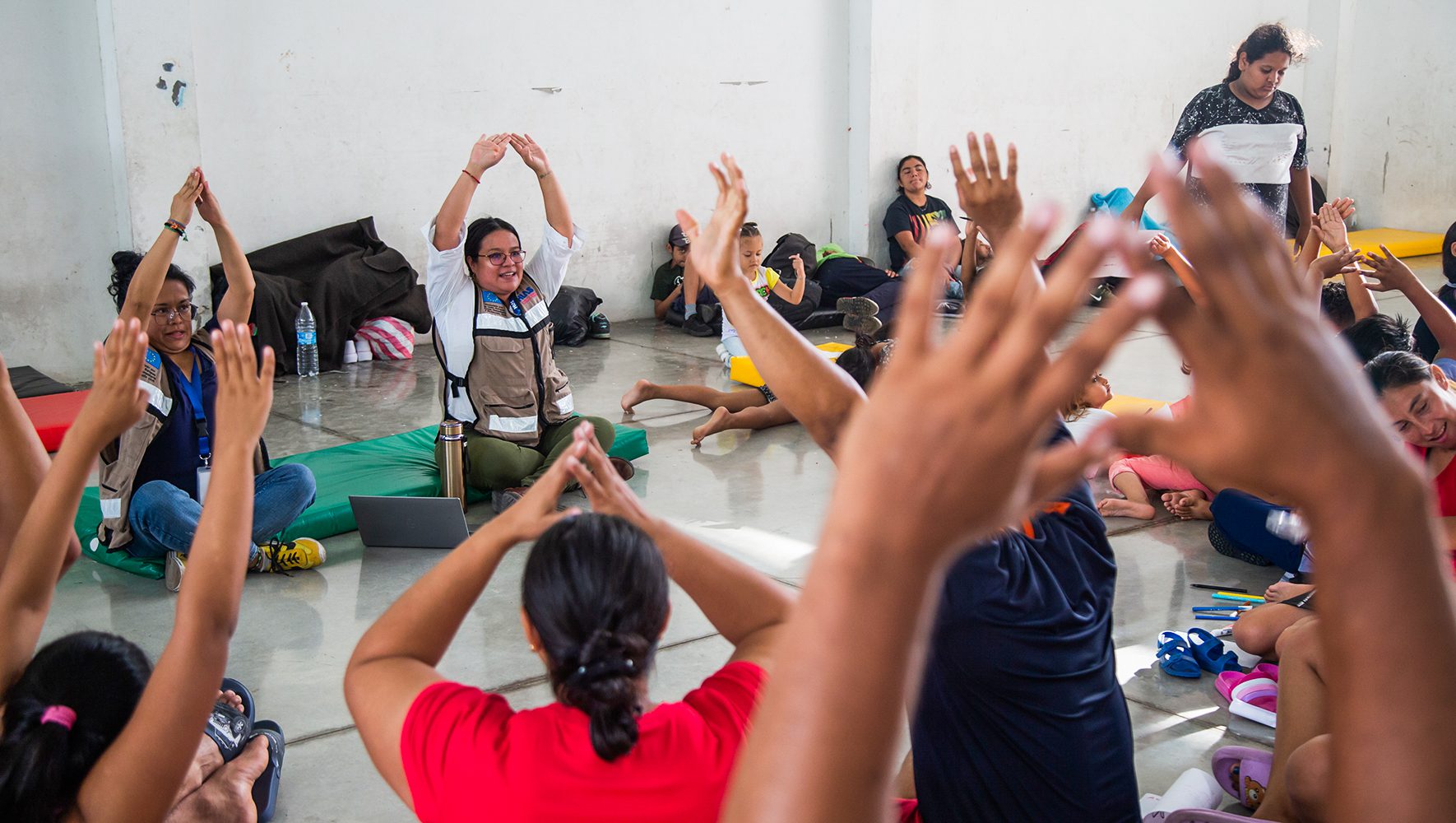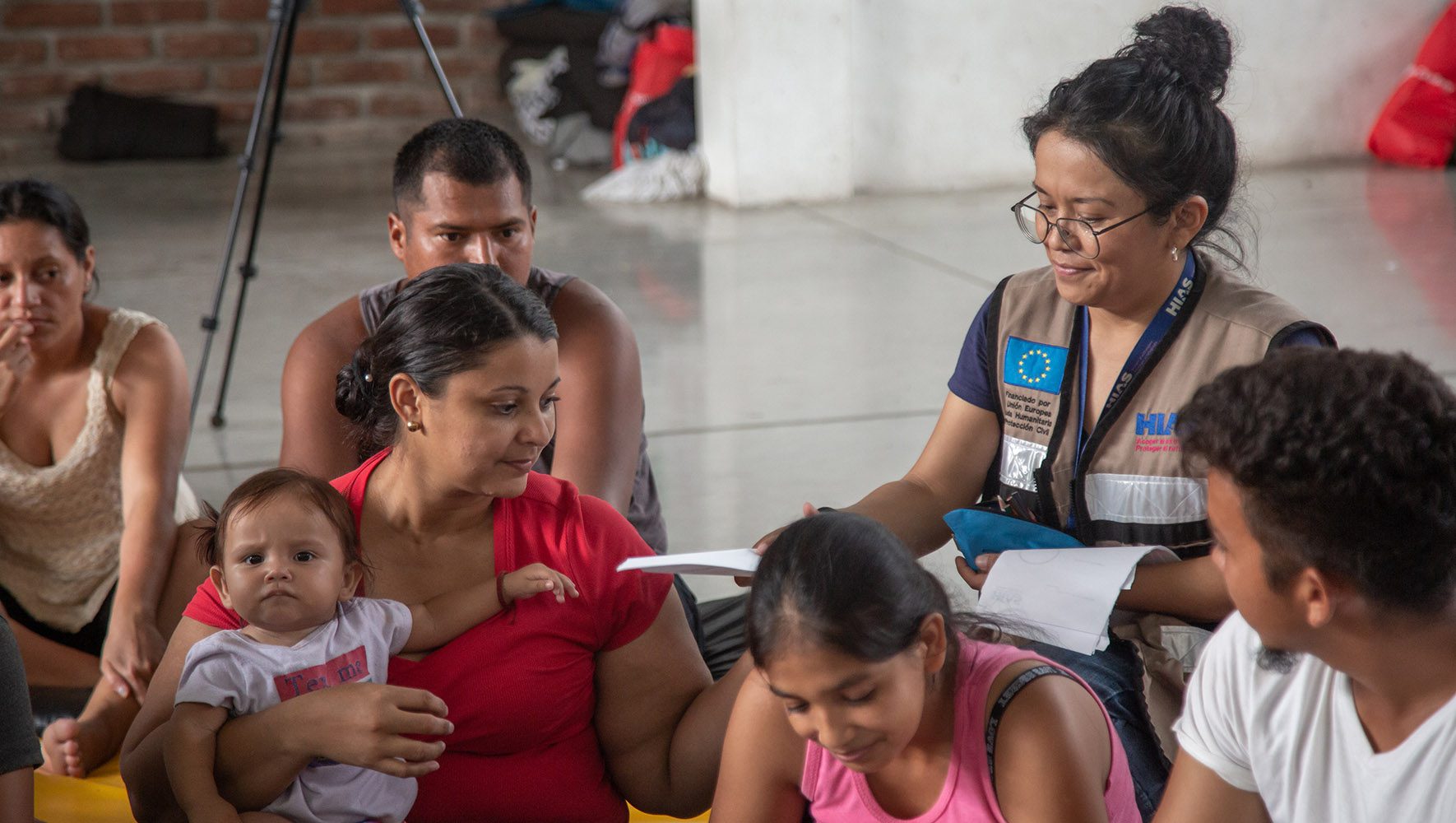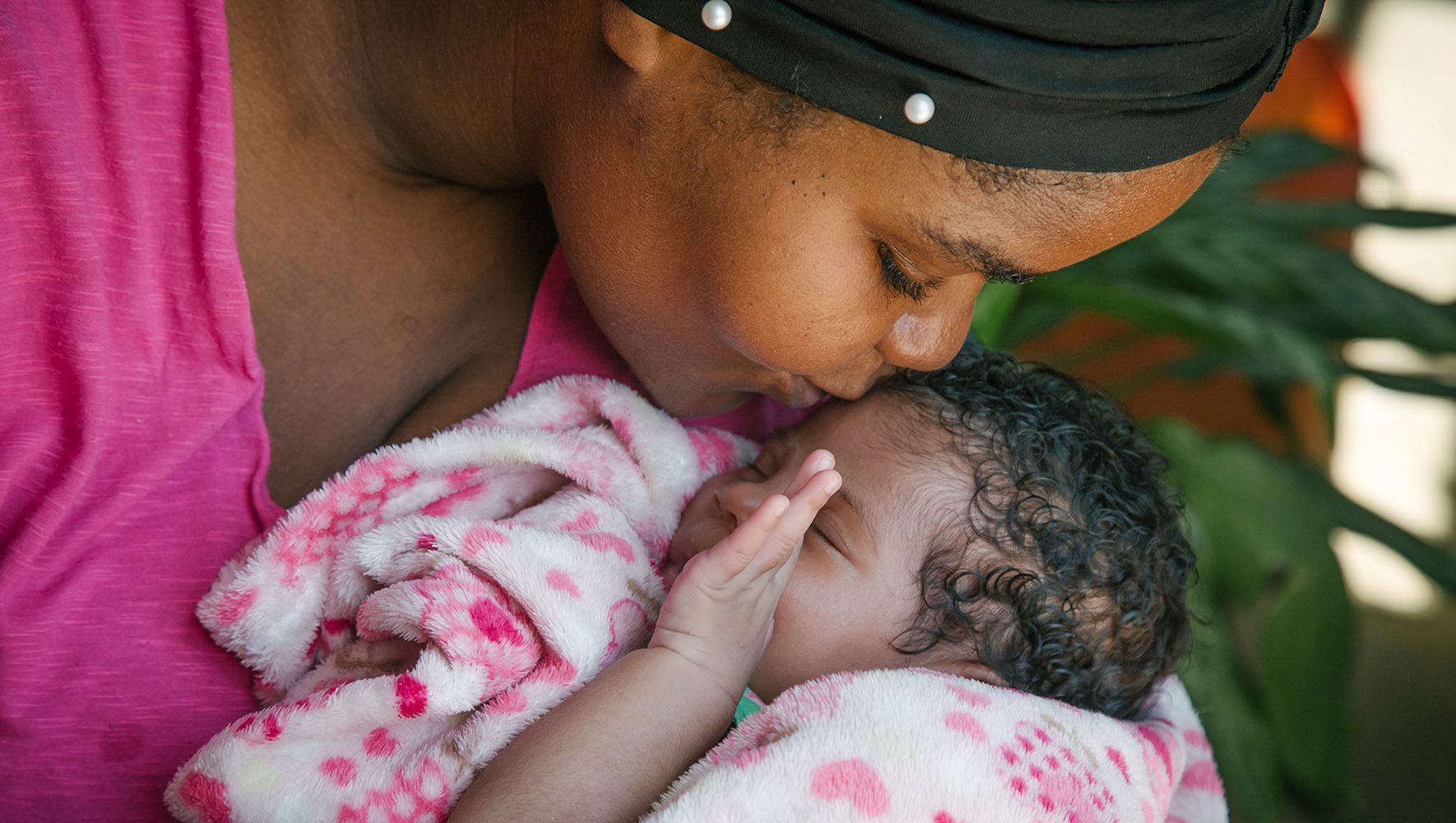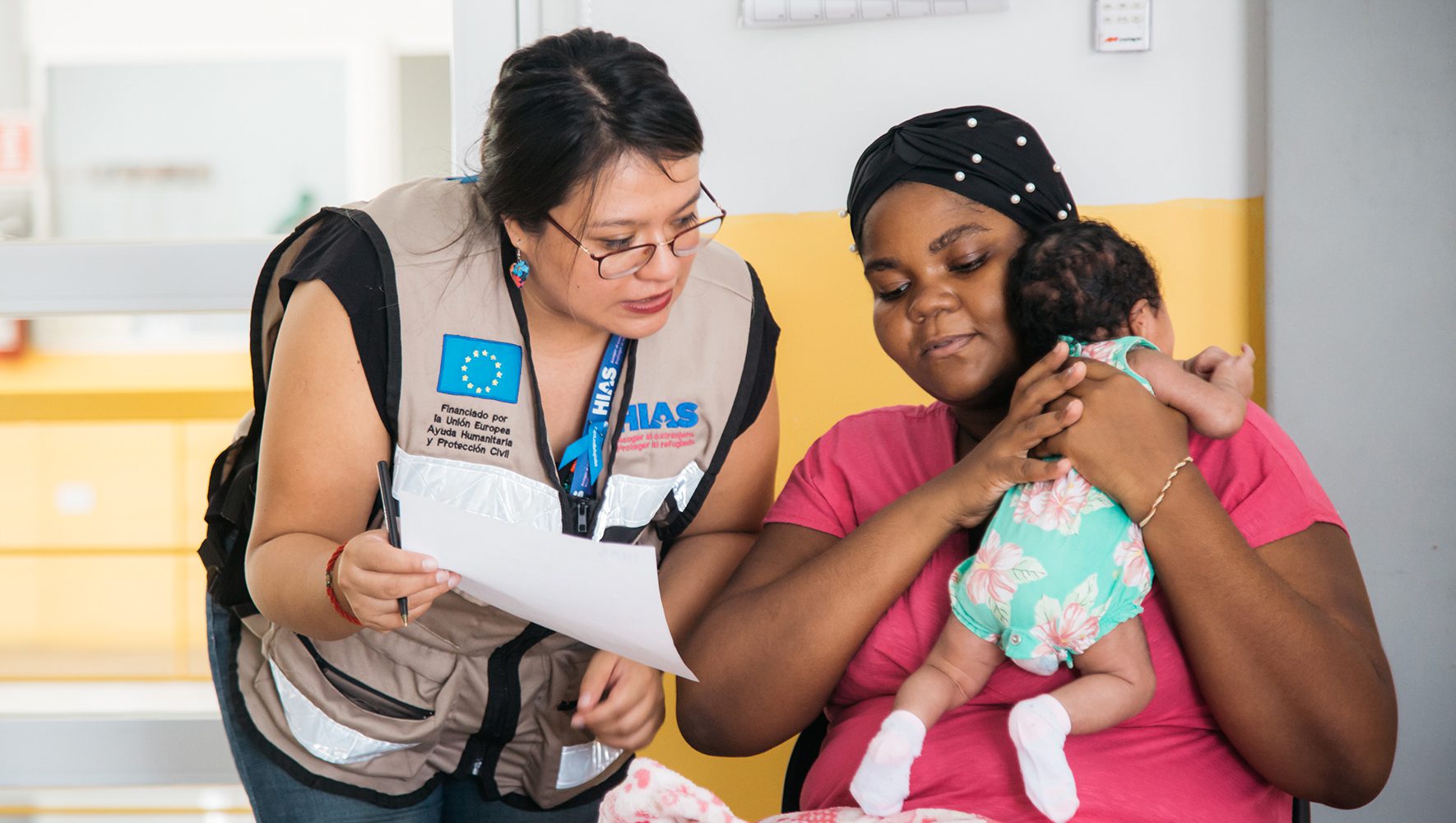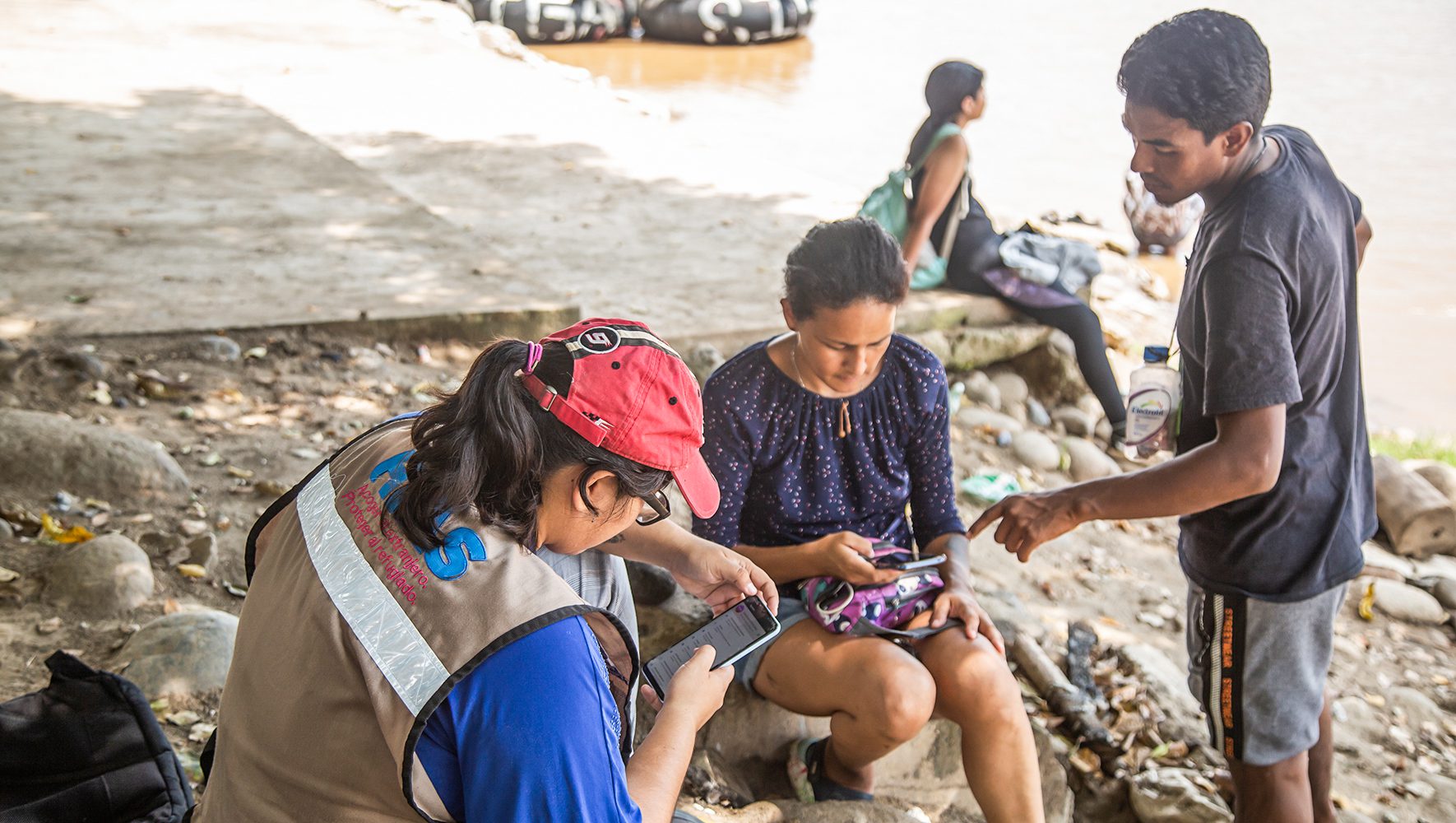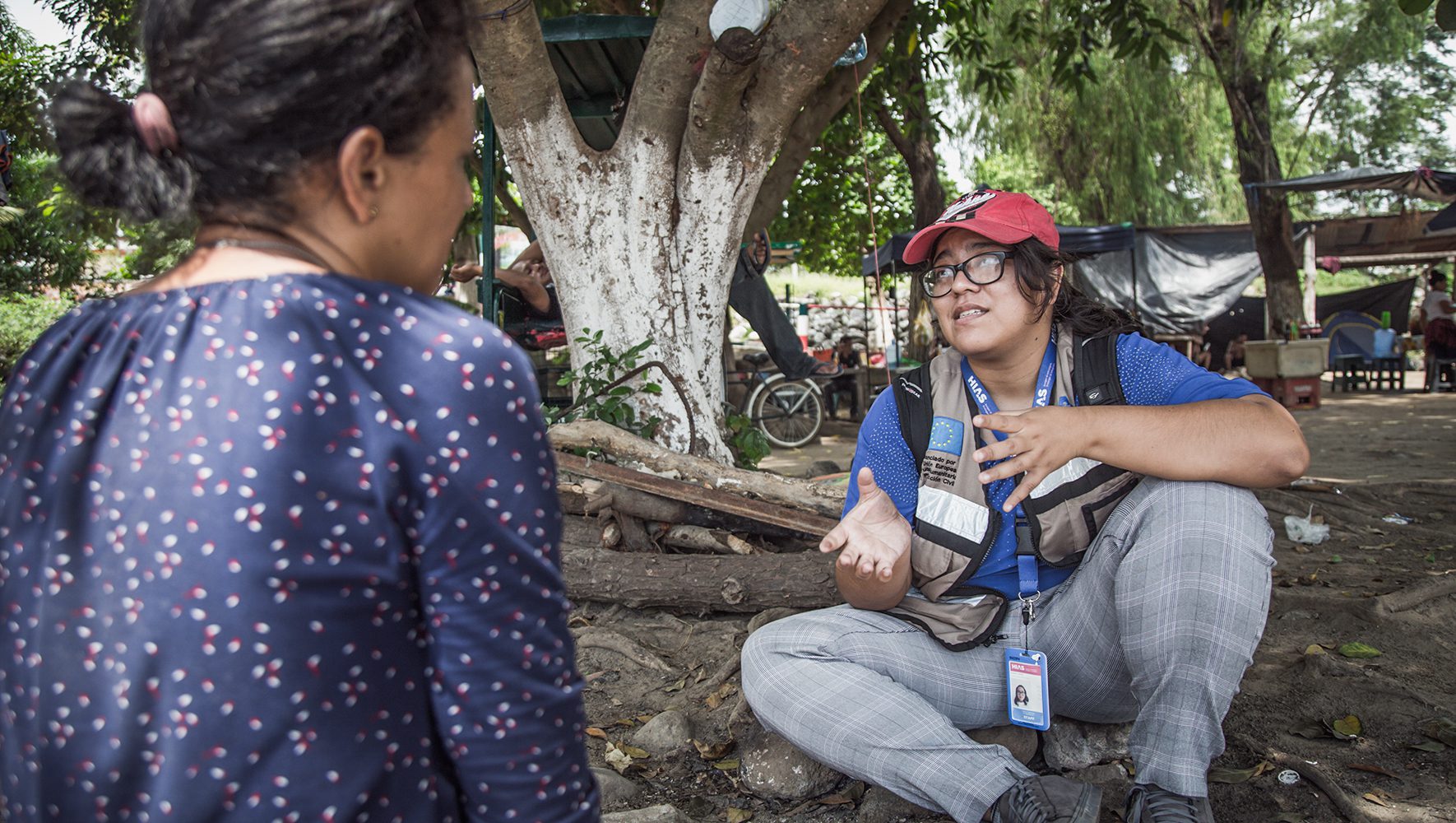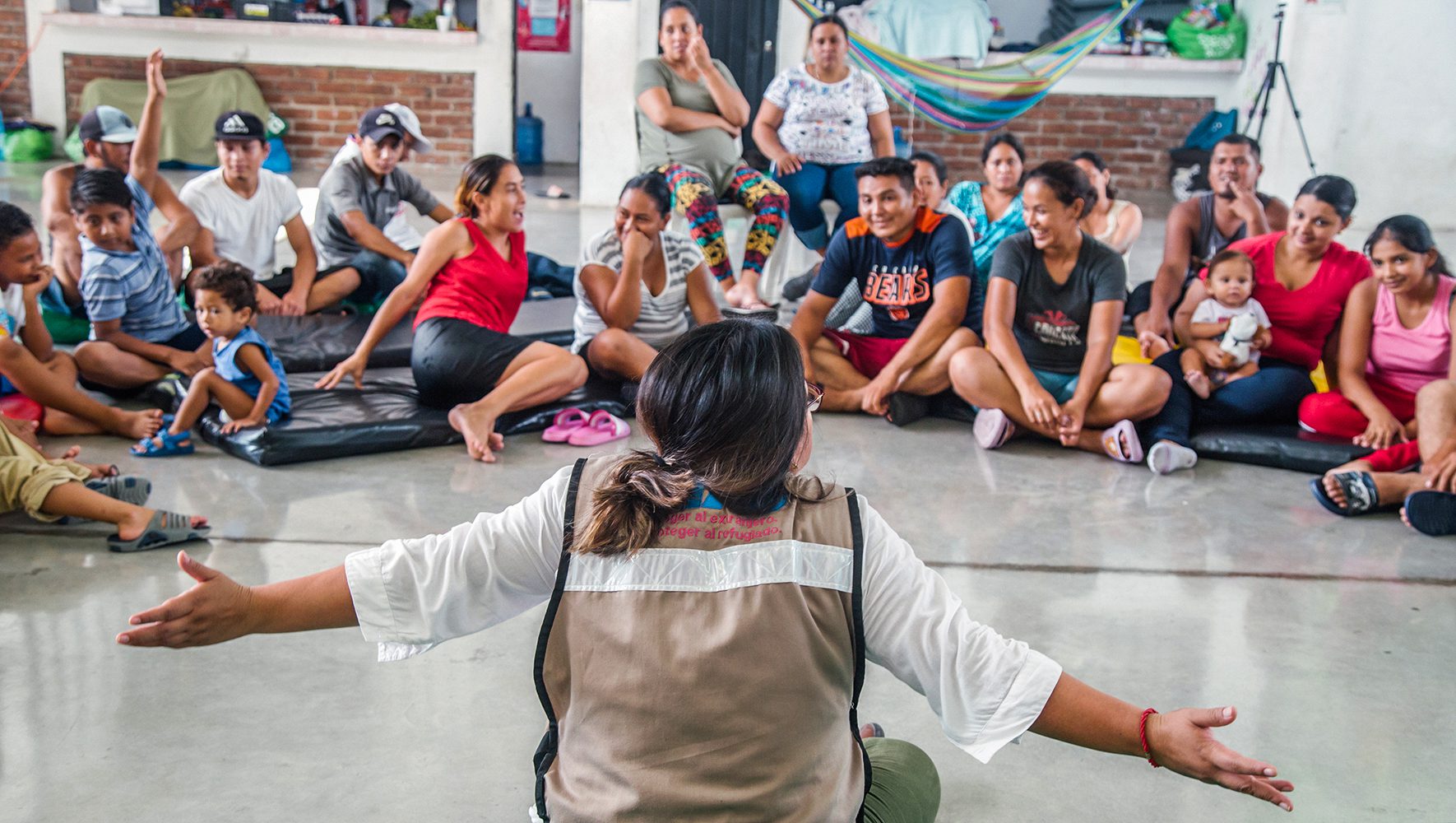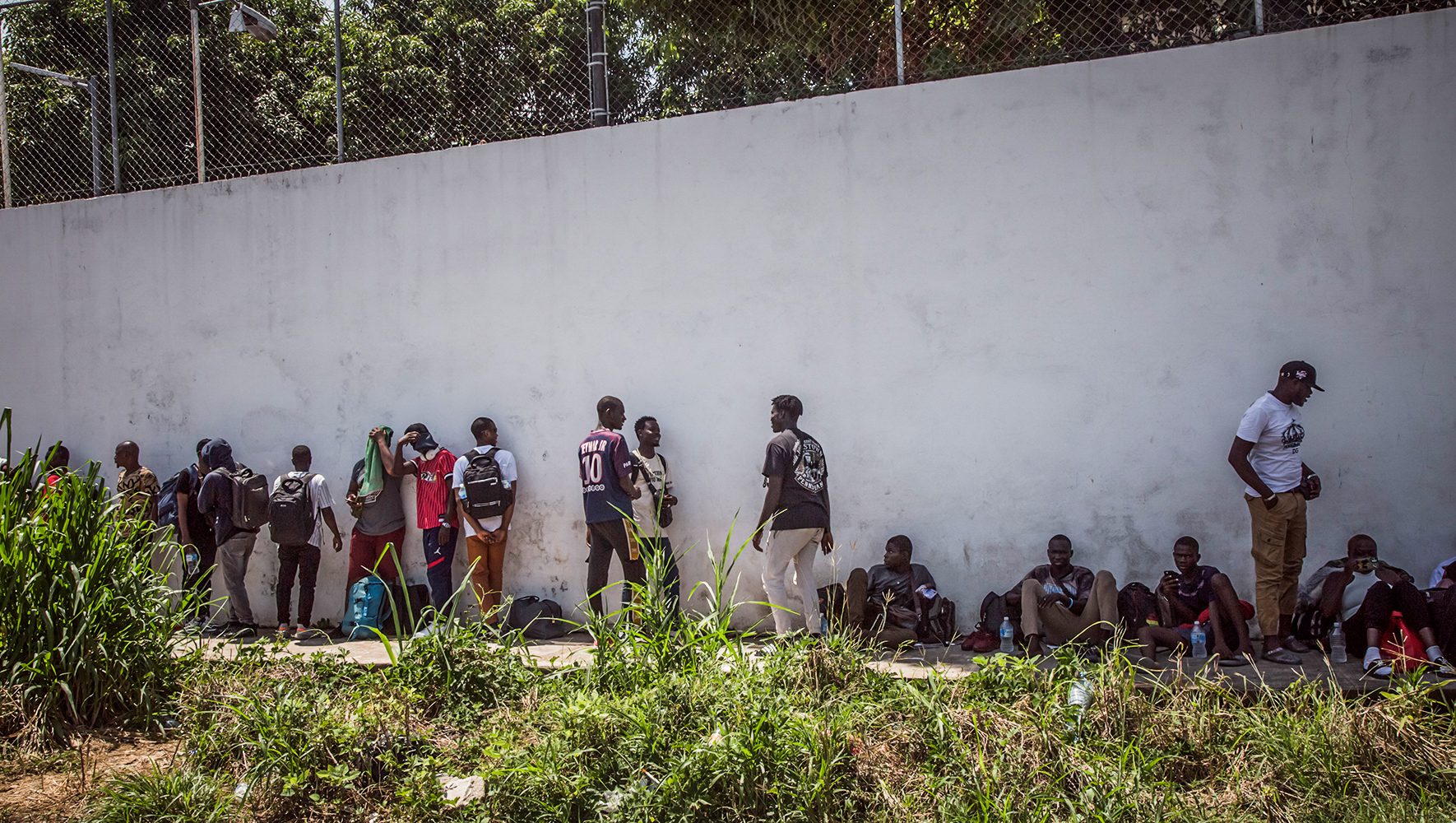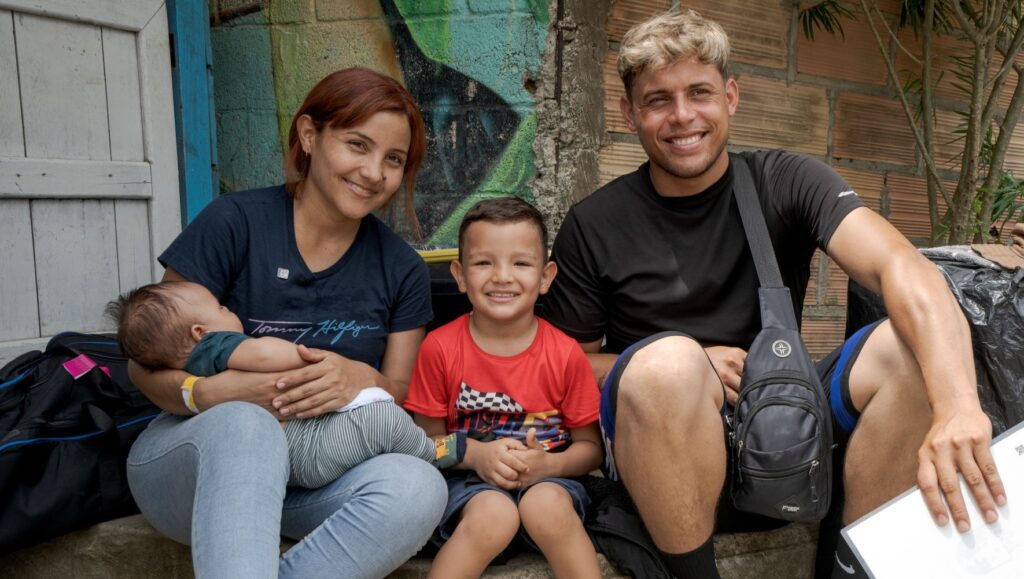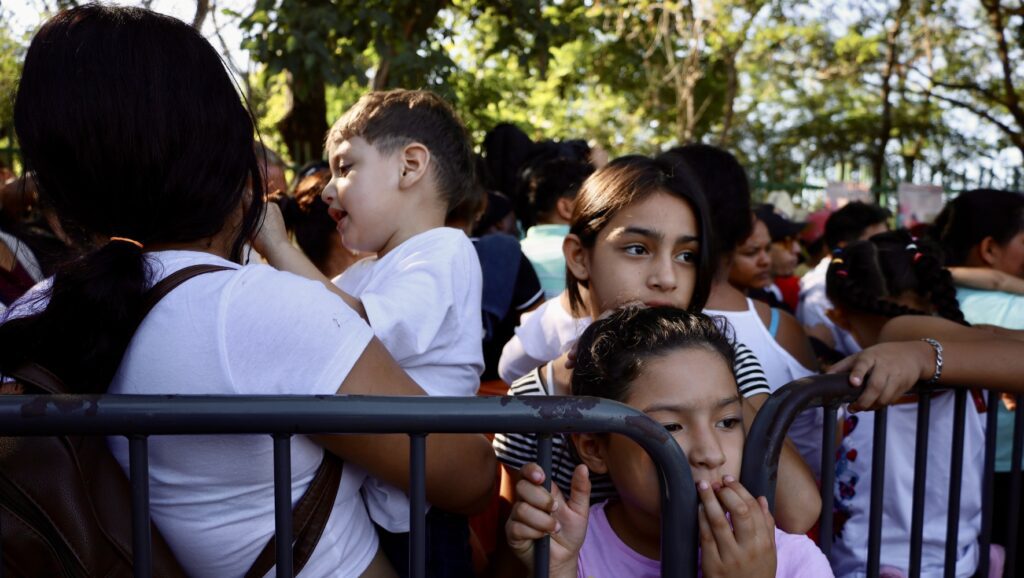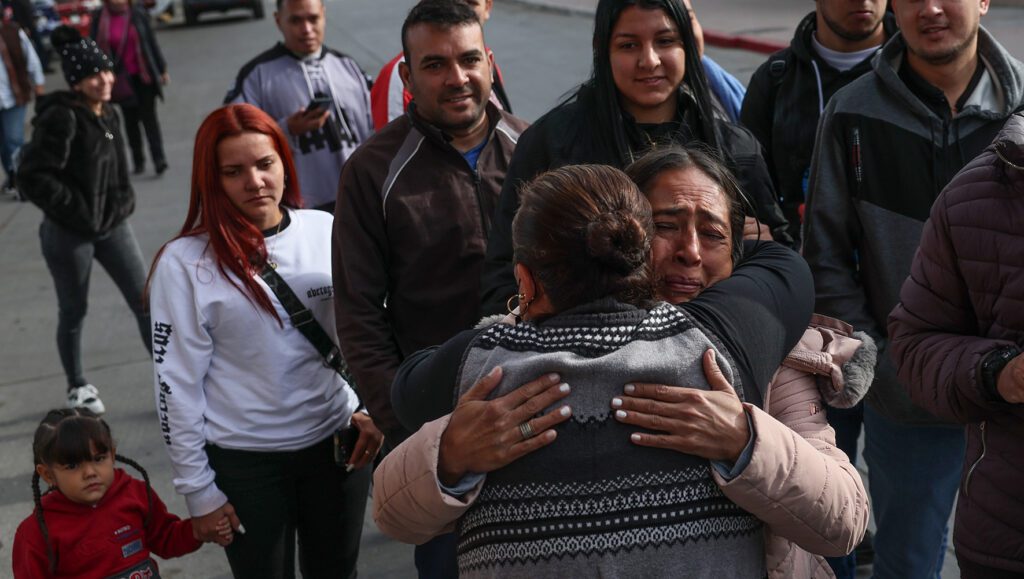TAPACHULA, MEXICO — For the many refugees and migrants making their journey toward Mexico, the Suchiate River crossing on the Guatemala border is a short boat ride that transports them from one land of uncertainty and risks to another.
At present, between 40,000-50,000 people are unable to leave the Mexican border city of Tapachula. There, they wait for a transit permit to continue their journey through the country or apply for asylum to Mexico. Most are unaware of long waiting times and lack the money to finance a longer stay. As a result, many become homeless, experience violence, and cannot access basic services.
But in this precarious situation, newcomers have found a valuable source of support. An all-woman team of HIAS staff is providing services to refugees and migrants who are at risk of or have experienced gender-based violence (GBV), including individuals from the LGBTQ community. The team is uniquely positioned to assist refugees subject to more extreme forms of persecution.
“I’m really proud to work with the team here. A group of women has a different perspective, because of our lived experiences,” said Paula Garcia, the GBV officer for HIAS Mexico. “My colleagues and I support each other a lot and work together very collaboratively. Our gender-sensitive approach enriches our work and it also helps create a safe space for our beneficiaries that have experienced GBV.”
“A group of women has a different perspective, because of our lived experiences.”Paula Garcia, GBV officer for HIAS Mexico
The HIAS Mexico team provides people with group workshops on how to identify and avoid types of violence people might encounter on the journey. The team also provides individual sessions focused on empowering participants, by explaining their rights to live a life free from violence and discrimination. Other aspects focus on building psychological resilience, controlling emotions, and relaxation techniques, while providing GBV case management and protection advice.
One person who participated in HIAS Mexico’s programs is Evelin*, a 35-year-old transgender woman from Honduras. A sex worker in her home country, she suffered constant physical and psychological abuse from her clients and other members of her community for being trans. One day, after a member of a criminal gang threatened to kill her on her doorstep, she fled to safety abroad.
“I originally moved with the hope of building a new life,” Evelin said. “I began working in sales and opened up my own small business selling food items and repairing clothes. But one day, my friend was murdered, and shortly after, I endured my own attempted murder.”
“That’s why I need to move again to find safety. There’s so much hate and discrimination against the LGBTQ community.”
Evelin has been waiting for several months for the resolution of her asylum request. During this period of time, she has received GBV prevention services and psychological support from a psychologist who works with HIAS. “Her help has made me feel very empowered, even after everything I’ve gone through,” Evelin said.
“Her help has made me feel very empowered, even after everything I’ve gone through.”HIAS program participant in Tapachula
What makes the HIAS approach in Tapachula unique is that staff are able to provide psychological support and GBV response and prevention in an integrated way. Therefore, people who receive a psychological consultation will also learn about GBV prevention, and vice versa. Staff are also trying to detect GBV survivors during psychological consultations, to provide them with more specialized support.
Roberto*, a 23-year-old gay man from Nicaragua, also fled his country because of the homophobic abuse he received from his family and from his community. He arrived in Tapachula in February this year and immediately applied for asylum. While waiting for his application to get processed, HIAS was on hand.
“For me, the support from HIAS has been great,” Roberto said. “You feel like no one is judging you, that finally you feel listened to and heard. It helped me to understand that everything that has happened to me hasn’t been my fault, which I used to believe. Seeing that there are organizations here that support the community is very important for me because they don’t exist in my country.”
“We need to prioritize people’s mental health,” said Laura Batista, mental health officer for HIAS Mexico. “Because people need to recover their hopes, dreams, and goals for the future, in spite of the challenging context they find themselves in here.”
HIAS Mexico’s intervention in Tapachula is funded by the European Union. HIAS is working as part of a consortium with Save the Children, Médicos del Mundo, the Danish Refugee Council, and Plan International to connect people with a range of services according to their needs.
*Pseudonyms used for clients’ protection.
